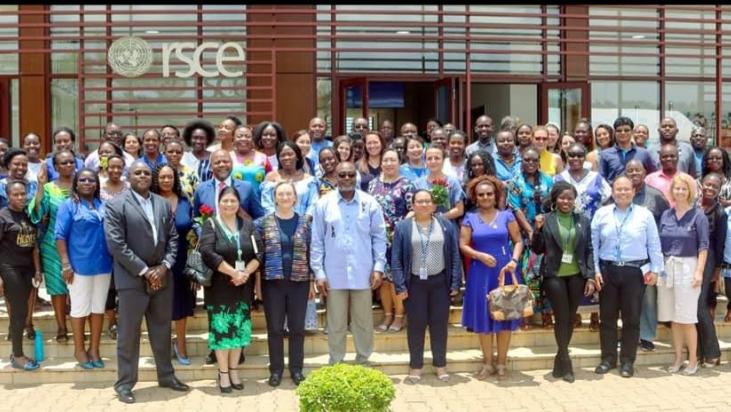Do you know how your country’s tax system impacts women? The Forum for Women in Democracy (FOWODE) joined us in our global campaign Make Taxes Work for Women, in order to raise awareness about this topic in Uganda.
Besides a presentation at the United Nations Regional Resource Center on March 6th about the progress towards the country’s commitments on women and leadership over the past 25 years, FOWODE also started a dialogue with the Ugandan citizens through social media. It aimed to hear the population’s thoughts regarding their tax system and discuss solutions to make it fairer.
Here are some suggestions of the FOWODE to tackle gender inequality through tax justice:
- Reduce tax avoidance and illicit financial flows
#MakeTaxesWorkforWomen #TaxJustice #FOWODEAt25
First and foremost, FOWODE defends the importance of ensuring that corporations pay their fair share of taxes. In many countries, including Uganda, companies have some benefits including lengthy tax holidays to start operations, supported by the idea that it will boost the local economy. However, in many instances it facilitates tax evasion, which impacts directly the public services: without a proper budget, the governments reduce their spending in public services. This affects more women and girls, given they have less conditions to afford private services.
“Unfair tax systems tend to intensify the inequalities between women and men due to their different gender roles”, explained Juliet Nakato Odoi, Director of Programmes at FOWODE. “Women need to be put at the forefront of these tax policies. To have a just tax system, there should be vigorous engagement of the government to ensure equity and equality in resource allocations.”
- Simplify the tax system to encourage formalization
FOWODE’s members believe that many people struggle to understand the country’s tax system and a simplification could improve the tax collection. According to FOWODE, about 50% of Uganda’s economy is still informal. “This not only impacts negatively on tax collection, but also retards innovation and business growth”, Juliet affirmed. “Citizens can only be engaged in what they have awareness of.” It is essential that both civil society organizations and the government put in place sensitization campaigns for citizens on their economic rights.
- Exempt agricultural inputs from taxation
https://www.facebook.com/ForumForWomenInDemocracy/
Given the majority of Ugandan women are engaged in the agricultural sector, these products are at the heart of the country’s development. Therefore, the FOWODE recommends that the government reviews the tax system in order to exempt agricultural inputs, to ensure greater gender equality. “Women are particularly vulnerable to poverty and so the development community needs to focus attention on the methods countries use to increase domestic revenues and how these affect poor women”, said Juliet.
- Increase women representation in decision-making
Tax policies at all levels need to take into consideration gender equity. Women are the majority among those living in poverty and should have more representation in decision-making to ensure a gender perspective in the tax systems. “We have fewer resources, less power and less influence compared to men, and can experience further inequality because of our class”, Juliet Nakato Odoi warned. “This is what FOWODE and our partners have been advocating for: to make the civil society’s voice reach the concerned bodies, by continuously lobbying.”
- Adopt a progressive tax system
A progressive taxation means one would pay taxes according to his/her capacity. Even though women earn less than men because of gender gaps, they are more burdened by taxes in many ways. One example is the consumption taxes on basic household goods. “Countries like Uganda raise more revenues from consumption taxes (Value Added Tax, excise duty), but it disproportionately affects women due to their care/family roles”, explained Juliet.
Since women are the main responsible for unpaid care and domestic work (76.2% of the total hours, according to the International Labour Organisation), they are less likely to have full-time and formal jobs than men. Therefore, consumption taxes are heavier for women.
Besides, she reminded us that “women barely benefit from the taxes they pay, especially in African countries”. According to her, almost all maternal deaths occur in establishments with lack of financial resources and could be prevented. “We need the government of Uganda to be gender sensitive when allocating budgets”, she claims.
To find out more about FOWODE’s work in Uganda, you can contact Juliet Nakato Odoi, Director of Programmes.
